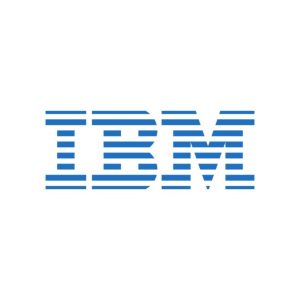- All
- Favorite
- Popular
- Most rated

Deployment Automation
This course discusess the components of an automated delivery pipeline, and non-distruptive deployment patterns.

Incident and Change Management
This course reviews incident management tools and automated and manual change management processes.

Integrate Watson AI Services to Add AI Capabilities to IBM Cloud Solutions
This interactive course introduces the Watson AI Services. You will learn the Watson products and solutions.

Networking Options for Power Virtual Server
This course introduces the networking capabilities and options of IBM® Power® Systems Virtual Server.

Power Virtual Server Overview
This course offers a high-level introduction to the Power Virtual Server, focusing on familiarizing learners with the product.

Operational Readiness Review
This courses introduces Operational Readiness Review (ORR) for cloud and application readiness.

Block Storage Capabilities and Options on IBM Cloud
In this course, you will review block storage for IBM Cloud Virtual Private Cloud (VPC).

Capabilities of Analytics Services on IBM Cloud
This course introduces architects to the capabilities of Hadoop and Spark, the similarities and differences.

The Structure of IBM Cloud
The course introduces the learner to the structue of IBM Cloud including the zones, regions and data centers.

Compute Considerations for SAP on IBM Cloud
This course introduces the characteristics of the different compute platforms supporting SAP workloads and covers the sizing principles and dependencies for each platform.

Security Policies and Monitoring Threats
This course explores IBM Cloud security and our security framework, Security Information and Event Management, and how SREs can effectively monitor security issues.

Troubleshoot Clusters on IBM Kubernetes Service
This course reviews troubleshooting strategies when using the Kubernetes

IBM Hyper Protect Crypto Services
This course reviews the benefits and options of IBM Hyper Protect Crypto Services (HPCS).

Building Cloud Native Applications
This course explores the core principles and practices of building cloud native applications.

Welcome and Introduction
This course provides a review of the recommended prerequisite knowledge and video of a day in the life of an SRE.

Identifying Customer Responsibilities and Planning Infrastructure Requirements
Differentiate between provider and client managed responsibilities when using an IBM Cloud Satellite and identify the infrastructure required to implement an IBM Cloud Satellite solution.

IBM Cloud AI-Ready Infrastructure: AI and IBM Cloud Connection
In this course, you will learn about the fundamental concepts of AI, its uses, and the different types of AI applications, along with AI infrastructure and gen AI applications.

IBM Cloud Technical Advocate Survey
Use this survey to include any feedback you have on the entire IBM Cloud Technical Advocate curriculum, including content, activities and labs.

IBM Professional SRE: Welcome and Introduction
This course introduces the course purpose, objectives, and navigation aids.

Managing Storage Accounts
The course covers data governance, storage management techniques, and storage solutions available for working with structured and unstructured data.

Metrics and Service Issues
This course identifies how to create and maintain metrics, traces, and alerts on IBM Cloud.

Introduction to IBM Cloud
This course examines the basic IBM Cloud® components, including the IBM Cloud platform, IBM Cloud platform security, and IBM Cloud hosting options.

Deployment Targets
This course introduces how to continuously automate resources by using IBM Cloud® Schematics and DevSecOps Toolchain.

Object Storage Capabilities and Options on IBM Cloud
In this course, you will review IBM Cloud storage, a highly available, durable, and secure platform for storing unsecured data.
The Founding of IBM and Its Evolution Over the Years
IBM’s roots trace back to the early 20th century, when it was initially founded as the Computing-Tabulating-Recording Company (CTR) in 1911 through the merger of three companies that manufactured various devices, including punch card machines and time-keeping equipment. In 1924, the company adopted the name International Business Machines, which aligned with its ambitions to lead the global market in technological solutions. During the 1930s and 1940s, IBM expanded its influence by introducing automated tabulation machines, which became essential tools for businesses and governments. IBM’s success continued with its innovations in mainframe computers in the 1950s and 1960s, which solidified the company’s position as a leader in computing technology. The IBM 701, released in 1952, was the company’s first large-scale electronic computer, and it marked the beginning of IBM’s dominance in the mainframe market.IBM’s Notable Milestones
Throughout its history, IBM has consistently been a leader in groundbreaking technology. Some of the company’s most notable milestones include:- 1964: The launch of the IBM System/360, a family of mainframe computers that could be used for a wide variety of tasks. This innovation was a turning point in the computing industry, allowing businesses to invest in technology that could grow and adapt with their needs.
- 1997: IBM’s Deep Blue, a chess-playing computer, made history by defeating world chess champion Garry Kasparov, showcasing the potential of artificial intelligence.
- 2011: IBM’s AI-powered system, Watson, won Jeopardy! against human champions, further cementing IBM’s leadership in AI research and development.
- 2016: IBM became one of the first companies to provide cloud services with its IBM Cloud platform, which today remains one of the most widely used enterprise cloud platforms worldwide.
- 2020: IBM advanced its quantum computing efforts by launching the IBM Quantum Experience, a cloud-based platform that allows researchers and developers to access quantum computers.
IBM’s Educational Offerings and Certifications
IBM’s dedication to education is evident in the wide range of courses it offers across multiple domains of technology. The company’s IBM Skills Academy is an industry-leading educational platform that provides learners with in-demand skills. IBM’s courses on EdCroma include specialized training in:- Data Science: Master the fundamentals and advanced techniques of data analytics, machine learning, and AI.
- Cloud Computing: Learn to develop and manage cloud infrastructure using IBM Cloud and other industry-leading tools.
- Blockchain: Gain expertise in blockchain development and its applications in finance, supply chain, and cybersecurity.
- Cybersecurity: Learn about the latest threats and how to defend against them, leveraging IBM’s extensive experience in securing enterprise-level systems.
- Quantum Computing: Explore the future of computing with IBM’s quantum education programs, which provide hands-on experience with quantum algorithms and development.
IBM’s Approach to Learning
IBM’s educational philosophy is centered on continuous learning and skill development. As technology evolves, so do the demands of the workplace. IBM ensures that learners stay ahead of the curve by offering courses that reflect the latest trends and technological advancements. Courses are designed to be interactive and engaging, with hands-on projects and case studies that help students apply what they’ve learned to real-world scenarios. Additionally, IBM emphasizes the importance of industry collaboration. Many of the company’s courses are developed in partnership with leading academic institutions and industry experts. This ensures that the curriculum is not only academically rigorous but also aligned with the needs of the business world.Why Choose IBM as Your Educational Partner?
IBM’s legacy of innovation, combined with its commitment to education, makes it a top choice for learners who want to excel in the tech industry. By enrolling in IBM’s courses on EdCroma, students gain access to:- World-class instructors with decades of industry experience.
- Cutting-edge resources and tools for hands-on learning.
- Globally recognized certifications that enhance career prospects.
- A community of industry professionals and thought leaders who are shaping the future of technology.

